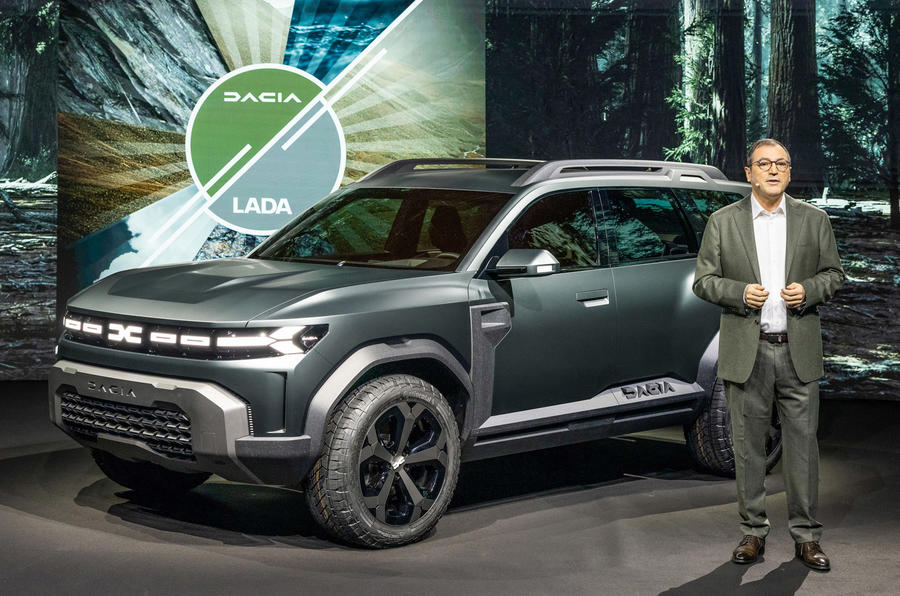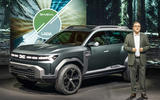The commitment from Dacia to selling low-cost cars will allow it to build lighter and more efficient vehicles for longer than rivals, according to CEO Denis Le Vot – which in turn will mean that the firm won’t have to produce costlier plug-in hybrids and EVs to reduce its CO2 emissions to avoid expensive fines.
While Dacia does now sell the Spring EV in some markets (and is likely to sell it in the UK), its only other commitment to electrification is to add its first PHEV – a version of the new seven-seat Jogger – in 2023.
Le Vot believes this cautious approach is critical to keeping the brand’s price advantage.
“We stand for exceptional value, and we’re able to offer that by giving our customers everything they need but never anything superfluous,” he said. “Today, air conditioning is considered essential, so we offer that. But electric seats with many adjustments? They aren’t essential, so we don’t offer them.
“In turn, that means that our seats – which are still very comfortable – are much lighter than those used by our rivals. That’s one detail, but there are many. And that means we produce much lighter and in turn low-emission cars, meaning we don’t need expensive electrification technology on them to meet all our regulatory requirements.”

Le Vot cited the example of the Jogger, which is due to launch in the UK imminently, pointing out that it weighs around 20% less than rivals at 1200kg in its base form. This means it can be powered by a more efficient engine that emits around 10% less CO2, according to its official test certification.
He hopes that by standing apart from the mainstream rush to electrification, Dacia will continue to attract value-conscious new car buyers and typical used car buyers – especially in today’s market, where high used prices have pushed new prices up. Luca de Meo, boss of parent company Renault Group, said last week that Renault's own line-up will go all-electric in Europe by 2030, but acknowledged that Dacia is likely to follow later, "at the last possible moment".











Join the debate
Add your comment
Dacia Euro NCAP ratings are dire not one gets 5 stars and the Spring only gets one. They are going to have to sort that out before anyone with any sense would buy any of their badly made cars
The Spring is a hugely important car and should do well for Dacia as there is little competition in that segment. Only the VW e-Up at the moment, and it should undercut that significantly. It's just a budget city car with limited range and space, but as a SECOND car in a household, used for shorter trips around town/cities it should sell. To get more people to go electric we need EVs in all classes and at lower price points.
It gets only one star Euro NCAP would you risk your life in one?
More manufacturers should be conscious of the weight of the vehicles they are producing, its ridiculous how heavy so many of the recent models are. Not only is it inefficient, all these heavy vehicles are a big reason our roads are in such a poor state of repair for the rest of us.